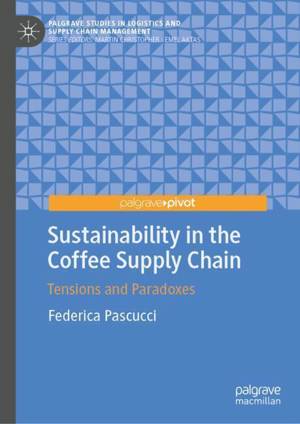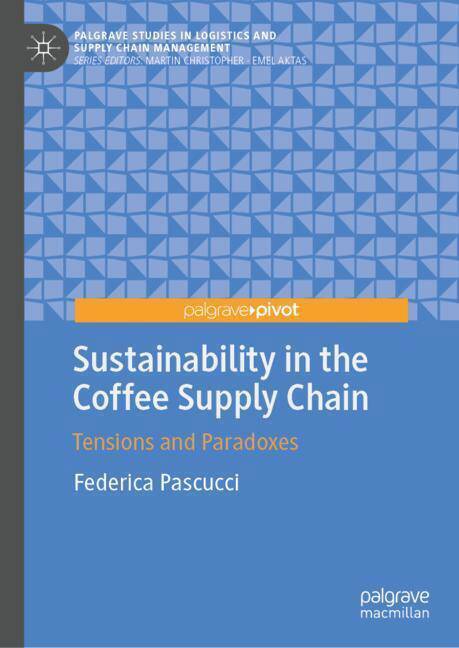
- Afhalen na 1 uur in een winkel met voorraad
- Gratis thuislevering in België vanaf € 30
- Ruim aanbod met 7 miljoen producten
- Afhalen na 1 uur in een winkel met voorraad
- Gratis thuislevering in België vanaf € 30
- Ruim aanbod met 7 miljoen producten
Omschrijving
From the field to the cup, this book investigates sustainability issues along the coffee supply chain, identifying the challenges that firms face when they are called to reach sustainability goals. In particular, it explores the relationships involving the actors throughout the broad coffee supply chain, among which some tensions may emerge. Firms increasingly need to interact with various supply chain members to achieve their sustainability goals and with a variety of other stakeholders as well, such as NGOs or regulators. Therefore, in order to fully investigate sustainability, it is fundamental to adopt a broader view of the supply chain that goes beyond dyadic relationships (typically, between customer and supplier).
This book adopts an "integrative logic" of sustainability and aims to explore the "hidden" or "dark side" of sustainable practices in the supply chain, for example, trade-offs, tensions and paradoxes. Overlooking these aspects can create serious impediments to a real-world progress toward sustainability. The empirical part of the book is focused on the coffee supply chain, which represents one of the most complex, globalized and inequitable supply chains, impacting communities and the environment worldwide. These characteristics make it particularly challenging for the industry to transition towards sustainability. Sustainability in the coffee sector is increasingly at risk in economic, social, and environmental terms, and there are several interdependencies among these three dimensions. The book will be of great interest to scholars and students of supply chain management, sustainability, and corporate and consumer responsibility. In addition, practitioners operating in the coffee industry could gain interesting findings about the most critical issues pertaining to sustainable practices and activities.
Specificaties
Betrokkenen
- Auteur(s):
- Uitgeverij:
Inhoud
- Aantal bladzijden:
- 92
- Taal:
- Engels
- Reeks:
Eigenschappen
- Productcode (EAN):
- 9783031725012
- Verschijningsdatum:
- 28/01/2025
- Uitvoering:
- Hardcover
- Formaat:
- Genaaid
- Afmetingen:
- 148 mm x 210 mm
- Gewicht:
- 330 g

Alleen bij Standaard Boekhandel
Beoordelingen
We publiceren alleen reviews die voldoen aan de voorwaarden voor reviews. Bekijk onze voorwaarden voor reviews.











